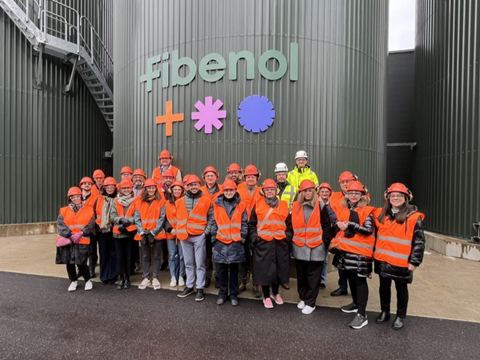
Following its one-year anniversary, the REDYSIGN project – which aims to develop recyclable, wood-derived packaging alternatives for fresh meat products – reports such progress as using fibre as an adhesive, testing smart solutions to signal spoilage, and applying markers for traceability.
The REDYSIGN research and innovation initiative was launched in October 2023. It is funded by Circular Bio-based Europe Joint Undertaking (CBE JU), coordinated by Tecnalia, and brings together thirteen industry partners with the shared goal of developing new technologies to manufacture every component of a pack – constituting a tray, barrier coating, pad and film – from wood-derived materials.
These efforts aim to align with several major targets of the United Nations Sustainable Development Goals and contribute to the EU’s target to achieve climate neutrality by 2050.
So far, steps have been taken to lower the energy consumption of wood fibre production and the water required for the high-consistency functionalization of fibres. The project notes ‘interesting results’ in the formulation of fibre for film-tray adhesion.
It has also set its sights on traceability for fibre-based packaging, noting the ‘key milestones’ of testing sensor materials and substrates to indicate spoilage; preparations made for traceability marker and contaminant detection; and initial identification markers for efficient sorting.
Furthermore, it has used life cycle assessments (LCAs) to evaluate the environmental credentials of its progress. Process flows have apparently been defined for each innovation; and, in order to assess the availability of chemical data, the project has conducted an initial screening of substances expected in the manufacturing phase.
A baseline has been established and validated for the LCA hotspot analysis. This is set to serve as a reference point to define environmental impact categories, with which a pack’s performance can be compared.
The project recently developed questionnaires to complete life cycle inventories, and it is currently in the process of collecting mass and energy data.
At its third in-person Consortium Meeting, the partners reviewed the previous six months of developments to list key takeaways and establish their next steps. Attendees also gathered for a technical visit to the Fibenol Plant in Imavere, Estonia, where woody biomass is converted into lignin, wood, sugar, specialty cellulose, and other biomaterials with ‘cutting-edge’ technologies.
Back in April, CBE JU opened a call for project proposals related to biobased materials. Eighteen successful applicants would be awarded a total of €213 million to scale their technologies, pursue industrial deployment, and boost investment and job creation at regional and local levels – all in hopes of stimulating a circular economy.
More recently, the CBE JU HORIZON programme has funded the POLYMEER project, in which fourteen partners work to develop new bio-based polymers, copolymers and polymer blends based on wet brewers’ spent grain. These efforts intend to diversify the range of material solutions capable of replacing traditional plastics.
If you liked this story, you might also enjoy:
The ultimate guide to the Packaging and Packaging Waste Regulation in 2024
How are the top brands progressing on packaging sustainability?
Sustainable Innovation Report 2024: Current trends and future priorities
Everything you need to know about global plastic sustainability regulation














No comments yet